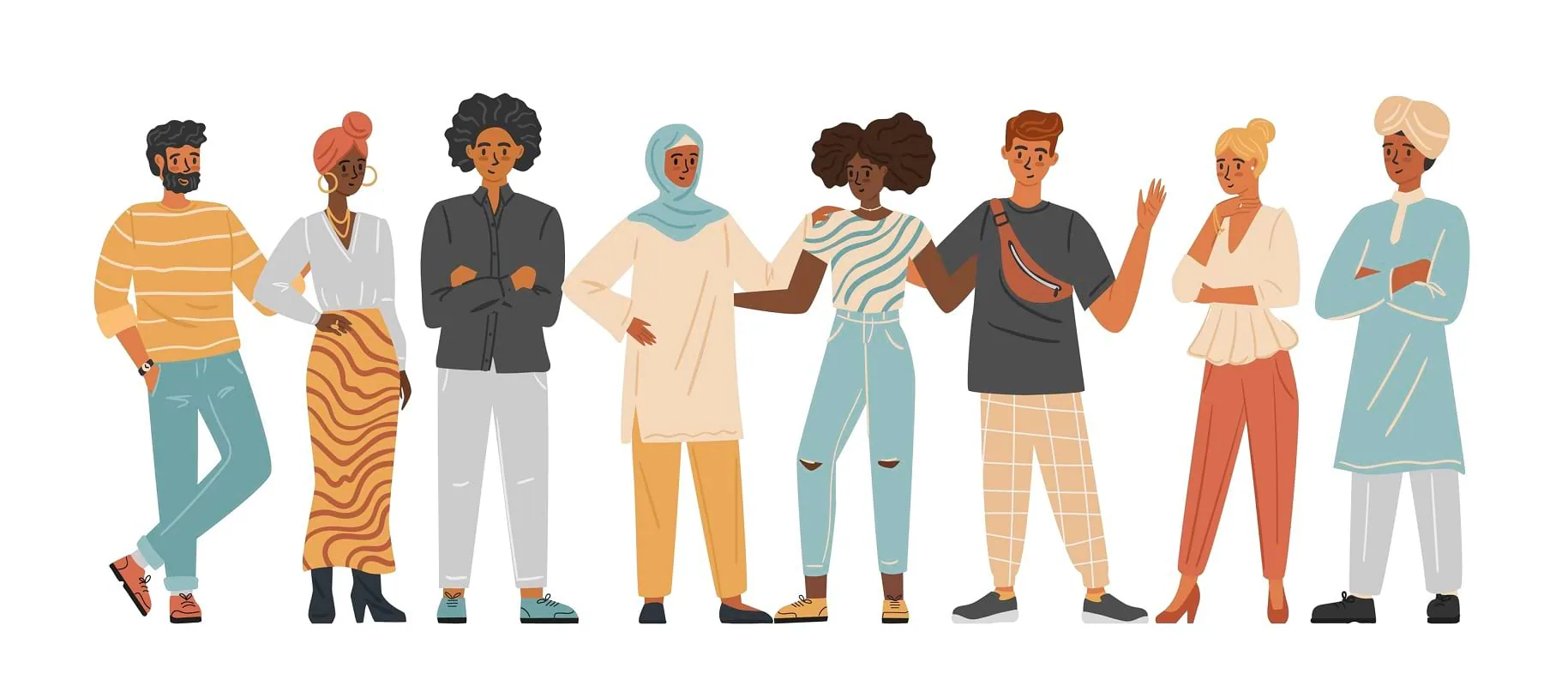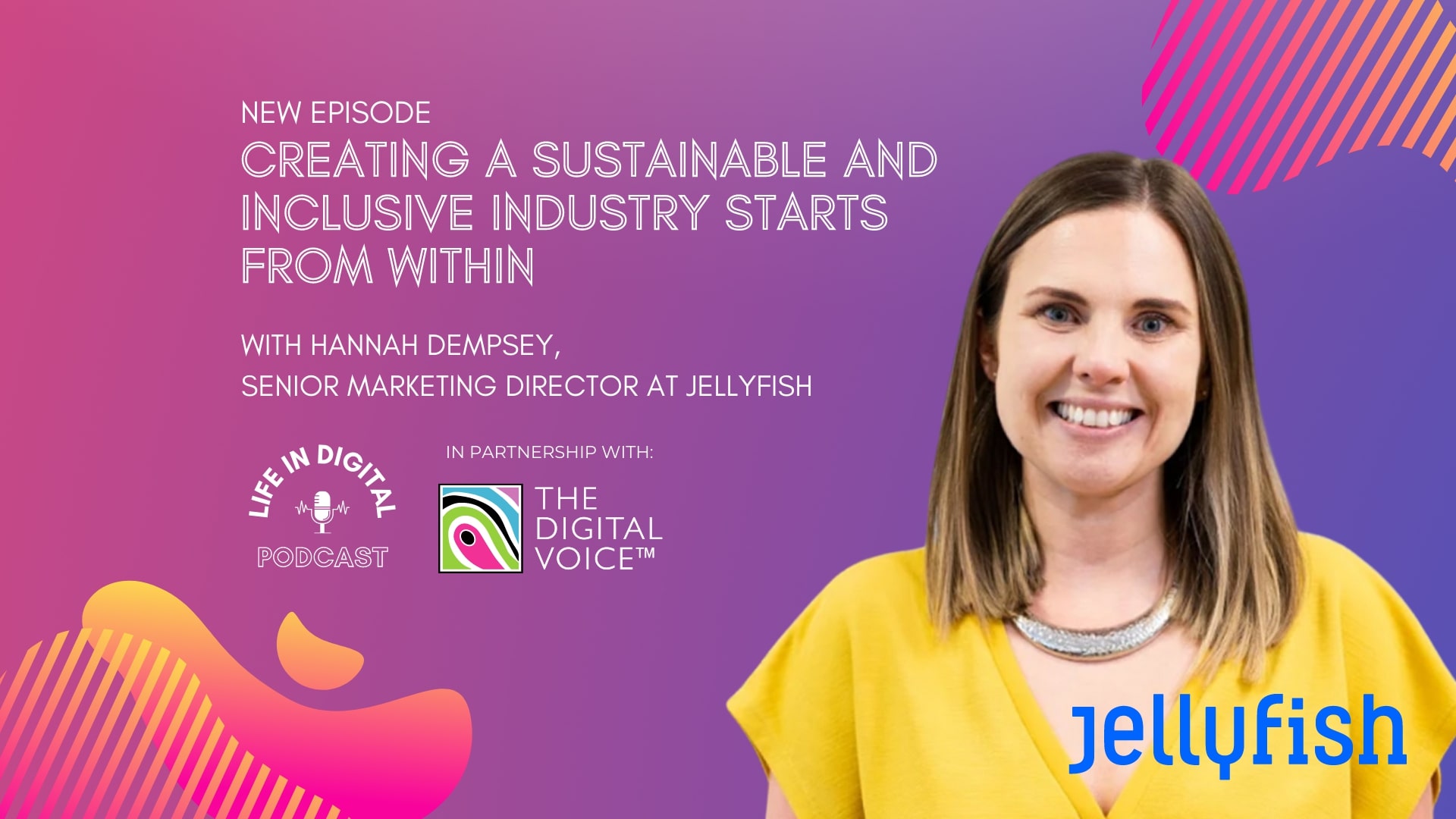
Inclusive Hiring to Grow Company Culture with MEFA
24 Jan, 20235 minsOn this week of the Life in Digital Podcast, as part of our new 'Leading with Inclusion' se...

On this week of the Life in Digital Podcast, as part of our
new 'Leading with Inclusion' series, talent manager Amy Halls is joined by Naren Patel, Founder of Media For All [MEFA]. They discuss
some of the common barriers that companies face when trying to hire diverse
talent, such as unconscious bias and lack of support from leadership, and ways
to create more inclusive workplaces, including mentorship programs, targeted
recruiting efforts and fostering a culture of belonging.
MEFA’s mission is to help Black, Asian and ethnic minority
talent thrive in the media and advertising industry and ultimately increase the
ethnic diversity of the media and advertising industry in the UK. Their ambition
is for MEFA to become the default community for Black, Asian and people from
ethnic minorities in Media (or affiliated industries) and they exist first and
foremost to support our members and provide a home for them.
The Creation of MEFA
Naren has worked in media for over 30 years, specialising in
out-of-home. Throughout his working life he has always been a part of the Advertising Association and NABS, which he is a trustee for. He came to the
decision to set up MEFA after realising at a NABS event that he and one other person
were the only non-white people there.
After research, he was shocked to see the stats:
- Less than 10% of people in media are non-white.
- Less than 4% in c-suite are non-white.
He realised that the industry clearly wasn’t attracting
talent. Whilst there are amazing companies such as WACL
and BLOOM that help women in the
sector, there was nothing for ethnic minorities in the sector.
Naren began by contacting ethnic-minority people he knew and
sat down for dinner with them to discuss the best way to move forward – they
decided on speed mentoring. Whilst NABS run a lot of speed mentoring events, which
involve specialists going around to 40-50 juniors and offering their advice, Naren
suggested that they run an event with all the industry leaders being from
Black, Asian or other ethnic-minority backgrounds. The purpose was to showcase
that talent exists at a senior level, and show people that this is an industry
where you can succeed.
When they ran the event, they expected 50-60 people to turn
up. Over 150 people showed up,
“It was ridiculous, the energy – that got me going, okay, we
need to do this!”
After finishing working full-time, Naren took the decision
to put time and energy into building MEFA.

MEFA’s 3 Company Pillars
Recruit
MEFA’s first pillar is ‘Recruit’, this pillar ensures that
members are aware of jobs that are going in the industry - this is done in two
ways. MEFA has 14 sponsors, including companies such as Global, Clear
Channel and Omnicom, who has recently
joined them. They have a membership community channel where sponsors post their
current jobs, which they then amplify. The second way is a WhatsApp group they
have which currently has 650 members. The members within the group chat also
post the jobs available at the companies that they work at. Although they might
not personally know the people on the WhatsApp chat, the idea is that knowing
there is someone who works at the company similar to you, and in the same
community that you are in, makes it easier for you to apply. It removes any
barriers and gives people the opportunity to ask what the company, culture, and
inclusivity is like before applying.
MEFA also have a partnership with the Ark Academy which runs schools in disadvantaged areas where a lot of their pupils are Black, Asian, or mixed ethnicity. They go into these schools and talk about the media sector and have started holding ‘inspiration days’. Pupils have the chance to go into the sponsor’s offices and see what working life is like in a media company, to inspire children to consider a career in Media.

Retention
There is a real issue with ethnic talent coming into
companies and leaving, so, this pillar is about how MEFA can make these people feel
more welcome. This is through the creation of the community, although people
might not work at your company, you know there are others in the same sector
who look like you, speak like you and have faced the same challenges you have.
It’s about encouraging people to stay at their companies, feel a sense of
belonging and feel less alone.
Rise
The final pillar addresses mentoring and training. MEFA run
workshops for their members, getting people to give talks about topics such as confidence,
and create a safe space for people to talk. Mentoring is their main offering,
which involves matching mentors and mentees based on skills, years of
experience and areas people want to learn in. The first year when Naren ran the
mentoring scheme, there were around 50 people, the second year there were
around 130, last year 170 and this year there have already been 200 people
register – it is growing very quickly. One of Naren’s current challenges is
finding more people to mentor, if this sounds like something you would be
interested in, sign up
here. (Please note you must be from Black, Asian or any other
ethnic-minority background).

Inclusive Hiring and Retaining Talent
“Businesses have started doing the first bit really well – getting
the talent in”.
Naren explains that the problem with recruitment bounties,
or referrals, is that you end up hiring all the same types of people, resulting
in a lack of diversity within the company. A lot of companies have decided to
stop doing this and are insisting on diverse pools and trying to ensure that on
average, the pools are matching the population. Alternatively, bias training
has been another popular method to ensure you’re hiring for skills and not just
to ensure people are ‘fitting in’.
“I’ve hired hundreds of people in my life, and I probably
have a 25-30% failure rate – like most people.”
Naren explains that people need to realise, it’s not always
the best candidate on CV that will be the best employee. Although you look for
people for skills, you naturally look for people who will fit into your
culture, but you need to look for people who have the skills, and can grow your
culture, and improve your thinking and creativity. He uses an analogy of
football to explain this further:
“If you hired all the people with the best skills, you’d
only employ strikers, but you’d lose every match. You need balance”.
Inclusion is the part that’s harder. Naren explains that
creating a system to hire diverse talent is easy, but bringing people in, ensuring
they feel a sense of inclusivity when there’s no one else like them in the
company, and deciding getting them to stay is the bigger problem that companies
are facing. Naren suggests that companies need to work a lot harder on making
sure people fit in, and ensuring minorities get the help they need to succeed.
Research indicates that programmes of sponsorship are the most successful. This
might include senior talent taking junior talent under their wing and giving
them some training, providing reassurance, being someone they can talk to, and
generally helping them along the way.

This blog covers just a fraction of everything Amy and Naren
discussed. Listen to the full podcast here, now!




